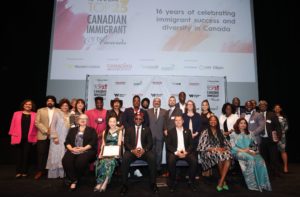Grounds for Persecution beneath IRPA: Refugee Claims in Canada

Elena, a 39-year-old from Russia, faces a important resolution. She has brazenly criticized her nation’s regime, making her a goal. In Russia, dissenting voices face harsh penalties. Because of this, Elena’s security is in danger day-after-day. Consequently, she decides to go away. Canada emerges as her beacon of hope. It’s a rustic recognized for shielding human rights and providing asylum. Elena wonders if her political beliefs qualify as grounds for persecution beneath Canadian legislation. This uncertainty is intimidating. Nonetheless, the opportunity of discovering security and freedom in Canada motivates her to maneuver ahead.
Defining persecution within the context of refugee claims
Persecution is a important idea within the Canadian Immigration and Refugee Safety Act (IRPA). It entails extreme human rights violations focusing on people or teams for his or her beliefs or traits. These violations vary from bodily hurt and torture to systemic discrimination. For persecution to be related, it should considerably threaten a person’s life or freedom. It additionally contains conditions the place the state fails to supply safety.
Persecution and IRPA Sections 96 and 97
The concept of persecution immediately hyperlinks to refugee standing beneath part 96 of IRPA. This section aligns with the United Nations Convention Relating to the Status of Refugees. It defines a Convention refugee as someone who fears persecution for reasons like race, religion, or political opinion. This fear makes them unable to seek protection from their own country.
However, persecution’s relevance extends beyond section 96. Section 97 broadens the scope of protection. It covers those who face a risk to their life or risk of cruel treatment if they return home. This includes threats that do not fit the strict definition of persecution under the Convention grounds. Yet, they present a significant risk to the individual.
In essence, while section 96 of IRPA outlines persecution based on the Convention grounds, section 97 recognizes other serious threats. These threats warrant protection in Canada, even if they fall outside the traditional persecution categories.
Grasping the complexities of persecution and its application under IRPA is critical. It ensures we can effectively protect and advocate for individuals seeking safety in Canada. This knowledge is vital for upholding their rights and security under Canadian law.
Grounds of persecution as defined in IRPA section 96
Section 96 identifies specific reasons an individual may qualify as a Convention refugee. Of course, these grounds are essential for assessing refugee claims in Canada. They include:
- Race – Individuals face persecution due to their racial or ethnic background. Case law, such as Canada (Attorney General) v. Ward, supports the broad interpretation of racial persecution.
- Religion – This ground involves persecution based on religious beliefs or practices. The Supreme Court’s decision in Syndicat Northcrest v. Amselem underscores the importance of religious freedom.
- Nationality – Persecution based on nationality can affect individuals belonging to national minorities or those discriminated against due to national origin (e.g., in Canada v. B344).
- Membership in a Particular Social Group – A diverse category that includes, among others, LGBTQ+ individuals and women facing gender-based violence. The evolving nature of this ground is highlighted in cases like Canada (Attorney General) v. Ward.
- Political Opinion – This includes persecution for holding certain political beliefs or being perceived to hold such beliefs, as seen in Martinez Menendez v. Canada. It’s noted that actual political activity is not a prerequisite for persecution.
These grounds form the cornerstone for determining refugee status under A96, guiding legal professionals in assessing and supporting refugee claims in Canada.
Beyond standard grounds: Navigating complex persecution claims
In refugee protection under the Immigration and Refugee Protection Act (IRPA), understanding the five standard grounds of persecution—race, religion, nationality, membership in a particular social group, and political opinion—is fundamental. However, it’s equally critical for immigration professionals to navigate additional complex aspects that may influence refugee claims. These nuanced considerations, as outlined in the Immigration and Refugee Board of Canada (IRB) guidelines, provide a more comprehensive framework for evaluating the multifaceted nature of persecution.
Internal Flight Alternative (IFA)
The concept of Internal Flight Alternative (IFA) challenges the necessity for refugee protection if a claimant can safely and reasonably relocate to another part of their country. This assessment involves scrutinizing the safety, accessibility, and reasonableness of such relocation, considering the claimant’s circumstances and the overall conditions within the country.
Civil war situations
Claims arising from civil war situations necessitate a careful analysis to establish a direct link between the feared persecution and the recognized Convention grounds. It’s essential to differentiate between general violence associated with civil unrest and targeted persecution, ensuring that refugee status is granted based on well-founded fears that align with the Convention’s criteria. Moreover, consider reading my article on the non-comparative approach to refugee claims in Canada.
Persecution vs. prosecution
Distinguishing between persecution and prosecution is crucial in refugee law. This differentiation hinges on whether the fear stems from legitimate legal sanctions or from punitive measures that effectively constitute persecution. Analysis focuses on the nature of the law, its application, and the intent behind legal actions against the claimant.
Military service
Issues related to compulsory military service, including conscientious objection and evasion, are critical for refugee claims. The key is determining whether refusal to serve, based on moral, religious, or ethical grounds, exposes the claimant to persecution, considering both the nature of the conflict and the individual’s specific objections.
Religious or cultural mores
Persecution claims based on religious or cultural mores encompass a wide range of issues, from gender-based discrimination to the targeting of specific religious groups.
Indirect persecution and family unity
The principle of indirect persecution recognizes the ripple effects of persecution on family members of the primary victim. This approach considers whether family members, by their relationship, may also face persecution and qualify for refugee protection.
Exclusion clauses – Articles 1E and 1F
Articles 1E and 1F are sections of the 1951 United Nations Convention Relating to the Status of Refugees (the Refugee Convention) that outline specific criteria for excluding individuals from being recognized as refugees.
Article 1E
This Article addresses individuals who are already receiving protection or assistance from other United Nations agencies or who have rights and obligations equivalent to those of nationals in the country they are residing in. Specifically, it states that individuals should not be considered refugees if they are recognized by the country’s competent authorities in which they have taken residence as having the rights and obligations attached to the possession of the nationality of that country. Essentially, Article 1E excludes individuals who do not need international protection because they already enjoy sufficient protection or have effectively integrated into another country.
Article 1F
This Article details the exclusion clauses for individuals deemed undeserving of international protection as refugees due to their involvement in certain serious crimes. It specifies three categories of serious crimes:
- Crimes against peace, war crimes, and crimes against humanity, as defined in international instruments drawn up to make provision in respect of such crimes.
- Serious non-political crimes committed outside the country of refuge before admission to that country as a refugee, particularly cruel actions, even if committed with supposed political motives.
- Acts contrary to the purposes and principles of the United Nations.
Article 1F ensures that individuals who have committed heinous acts or pose a danger to the safety and security of the community in the host country are not granted refugee status. It underscores the principle that the protection afforded by the Refugee Convention is not available to those who have violated basic human values or international norms.
Victims of criminality and nexus to grounds
The intersection of criminal victimization with the Convention grounds introduces an additional layer of complexity. Not all victims of crime qualify as refugees; however, when criminal acts are perpetrated or condoned by the state, or when they intersect with the claimant’s race, religion, or another protected ground, and are compounded by a lack of adequate state protection, these circumstances may indeed form the basis for a persecution claim. This consideration ensures a holistic approach to refugee protection, recognizing the diverse and sometimes subtle forms of persecution that claimants may face.
Nexus in refugee claims: A key link
The term “nexus” plays a crucial role in refugee claims, highlighting the required connection between an individual’s fears and the specific reasons for this persecution, as the 1951 Refugee Convention outlines. This convention identifies five grounds for persecution: race, religion, nationality, membership in a particular social group, and political opinion. To qualify for refugee status, an individual must demonstrate that their fear of persecution directly relates to one or more of these grounds.
In essence, a person must show that their fear of harm is specifically because of their race, religious beliefs, nationality, group membership, or political views. This nexus requirement distinguishes individuals facing targeted persecution based on Convention grounds from those fleeing general violence or other non-qualifying situations. It ensures that the protection offered under refugee status is reserved for those genuinely at risk due to discrimination on these grounds.
Book your consultation now.
Navigating refugee claims can be daunting. If you’re seeking asylum or need advice on your refugee claim, I’m here to help. As an experienced immigration consultant, I provide personalized guidance to address your needs. Don’t navigate this process alone. Book a consultation with me to gain expert insights and strategies for your case. Alternatively, you may fill out the following form.
Would you please fill out our free assessment form if you wish to visit or move to Canada? We will review it for free, but we will contact you only if we find an opportunity for you. Alternatively, you may book a consultation session. Consultation sessions are not free, but you will receive formal immigration advice from a licensed practitioner.
Al ParsaiAl Parsai, LLM, MA, RCIC-IRB
Regulated Canadian Immigration Consultant
Adjunct Professor – Queen’s University – Faculty of Law
Ashton College Instructor – Immigration Consulting
Author – 88 Tips on Immigration to Canada
Fill our Free Canada Immigration Assessment Form in your language!
 ‘ Credit score:
‘ Credit score:Authentic content material by www.settler.ca – “Grounds for Persecution beneath IRPA: Refugee Claims in Canada”
Learn the complete article at https://www.settler.ca/english/grounds-for-persecution-under-irpa-refugee-claims-in-canada/









